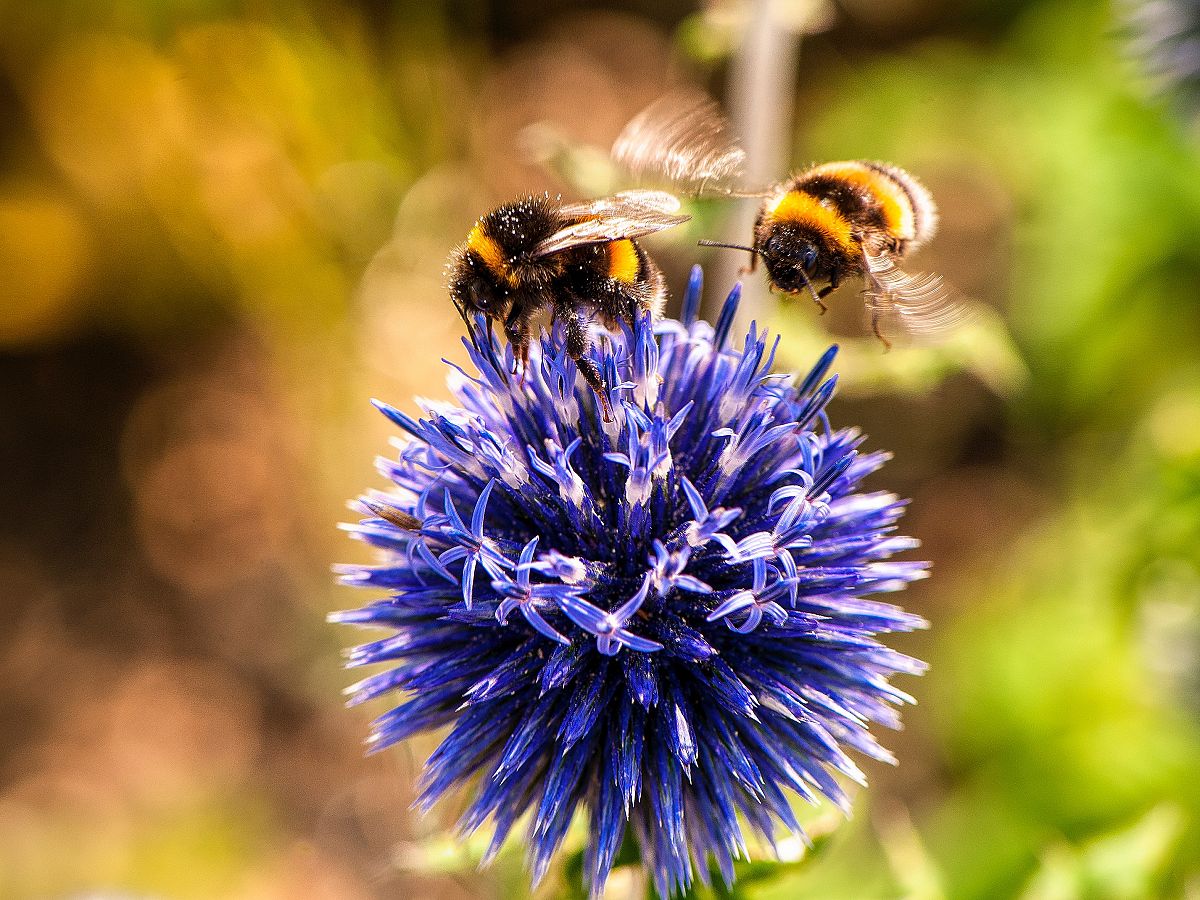Whilst we may enjoy stopping to take in the beauty of flowers, new research shows that bumblebees waste no time with such pleasantries and instead only learn the minimum needed about where to land and find food. Research involving our Department of Biosciences looked at how bees learn the colour patterns of flowers to find food.

Targeted learning
In the study bees were presented with artificial flowers – circles of blue or yellow, or half and half, with a sugar solution at their centre.
These artificial blooms were positioned upright, and the flight pattern of the bees mean they mostly saw the bottom half of the circles as they came into land.
When bees encountered a test circle that had a different arrangement of the two colours, the bees paid most attention to whatever colour had appeared in the lower half of the artificial flower they were used to – suggesting they learned just this basic information rather than inspecting and memorising the whole flower.
Complex behaviours
The study used different versions of the task to observe how bees responded.
The research findings suggest that bees extracted only the information they needed, to find their food, shining more light on how bees think and learn.
The study may also provide insights into the evolution of flowers and how the colourful patterns can help pollinators such as bees to land quickly and safely.
Analysing insect thinking
The research was led by the University of Exeter, whilst Dr Olena Riabinina from our Department of Biosciences led on analysing the video recordings of the bees.
Dr Riabinina, who specialises in insect sensory neuroscience, including the study of insect sense of smell, vision and hearing, wrote specialist computer code to analyse the videos to understand the findings of the study.
The research is published in Frontiers in Physiology.
Find out more
Read the full journal paper.
Discover more about Dr Olena Riabinina.
Find out about undergraduate and postgraduate study in our Department of Biosciences.
